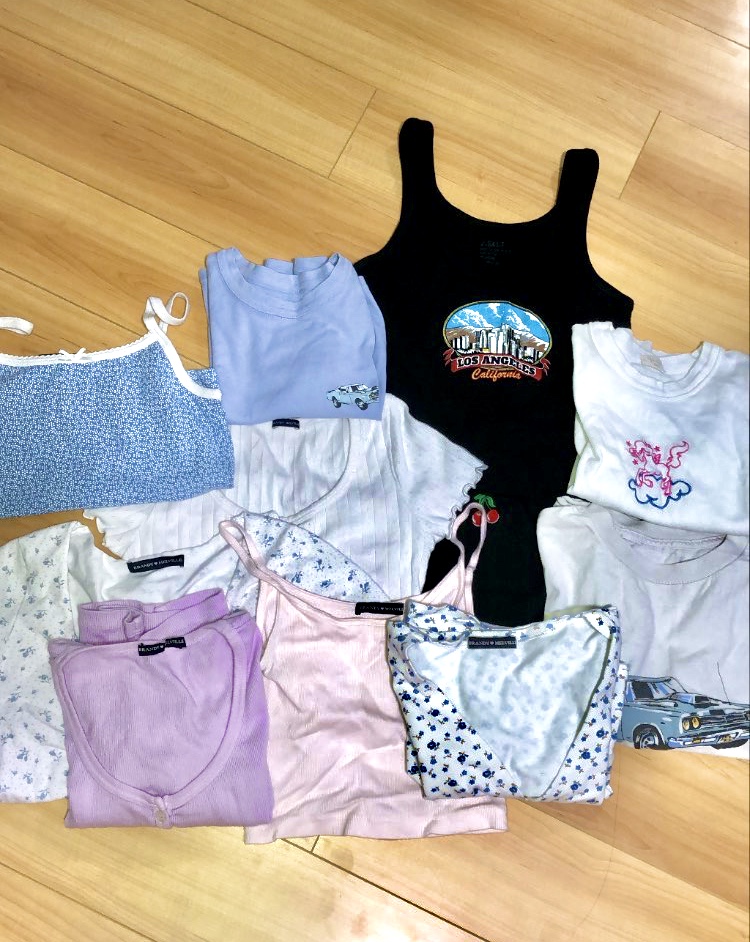
By Kayla Hoang
Brandy Melville opened its doors in Los Angeles over a decade ago and established itself as a prime source of trendy, cool and contemporary fashion for teenage girls across the world.
But beyond Brandy’s iconic striped Tilden pants and floral wrap tops lies a major point of controversy: “one size fits all.” Brandy Melville’s lack of size diversity does nothing but harm the self-esteem of teenage girls who don’t fit into the store’s marketed body size.
“One size fits all” is a myth to anyone who’s ever been out in the real world. There’s no such thing as one size that can fit the multitude of different body types, and clothes that are “one size fits all” usually fall on the skinnier side of the scale.
Brandy Melville promotes itself as an inclusive brand, but anyone clicking through the company’s website or social media can clearly see that it only caters to a tall, skinny, small-waisted and small-chested girls. Their website claims that some of their skirts and tops can fit up to size medium, but their models say otherwise. The only items that fit sizes medium to large are their oversized outerwear and t-shirts.
To further create a diverse demographic of buyers, Brandy Melville doesn’t work with professional supermodels. Instead, the brand partners with young social media influencers and models and reposts photos of normal girls wearing their clothes on their Instagram pages to express an image of relevance, but it’s an illusion of inclusivity because their models are all skinny.
There isn’t anything wrong with having a skinny body type; the issue here is that this is the only body type that Brandy Melville, along with other modern, youth-targeting companies, wants to use to market their clothing, trends and idea of beauty.
In an age where advertising and photoshop shove a specific image of what constitutes an “ideal” body down our throats, self-image and esteem are already issues for the youth, especially for girls. Considering that Brandy Melville’s target customers are also the ages most exposed to this type of media, the company is feeding off the insecurities of young girls when they are probably the most insecure.
And given the popularity of Brandy Melville, it’s sad to see that their exclusivity works well. Other youth-targeted brands have already followed the same unfortunate “one size fits all” path, such as Forever 21 and American Eagle. “One size fits all” does nothing to resolve the issue of “standardized beauty,” but instead feeds into it more.
It’s not a crime to buy from Brandy Melville, but the company isn’t helping any girls when it comes to self-esteem. Despite the strides that plenty of other clothing and modeling brands have made in opening up body diversity, the popularity that exclusive brands such as Brandy Melville have among the youth is two steps backward to whatever progress made.
“One size fits all” is a mask for conforming to only a specific body type. Assuming every body to be type A or type B is illogical when manufacturing clothes. If Brandy Melville, or we as a society, want to take a a bigger step towards inclusivity, we must recognize that everybody is different, and body diversity is something to be embraced instead of ignored.





